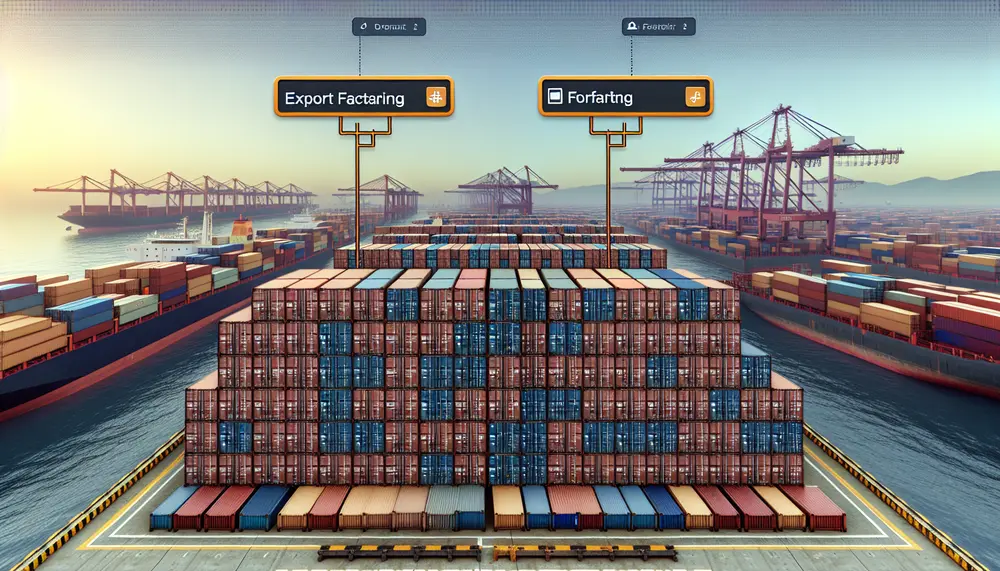Financial risk
Financial risk
Understanding Financial Risk in Factoring
Financial risk refers to the possibility of a loss that a company faces when managing its finances. In financial factoring, this risk is linked to the chance that clients may not repay their debts. Factoring involves selling your invoices to a third party at a discount, gaining immediate cash. This process shifts some risks from the original company to the factoring provider.
Types of Financial Risks in Factoring
Several types of financial risks can arise in factoring:
- Credit risk: The risk that a client may fail to pay their invoice.
- Liquidity risk: The threat that the factoring company might not provide funds quickly enough.
- Interest rate risk: The risk of interest rates affecting the cost of factoring services.
- Operational risk: The possibility of internal errors or fraud within the factoring company.
Minimizing Financial Risk in Factoring
To reduce financial risks, parties involved in factoring should do their homework. This includes:
- Assessing the creditworthiness of clients whose invoices are being factored.
- Choosing a reputable factoring company with a solid track record.
- Negotiating clear terms to understand all implications in the factoring agreement.
The Impact of Financial Risk on Businesses
Financial risk can significantly impact a business's cash flow and profitability. If a client fails to pay, the company may face financial strain. Likewise, unexpected changes in the factoring service's costs could alter financial projections.
Factoring as a Financial Risk Management Tool
While factoring introduces some level of risk, it can also be a smart way to manage financial risk. By using factoring services, businesses can convert future payments into immediate capital. This can help maintain steady cash flow and fund operations effectively.
Ultimately, understanding and managing financial risk in factoring is critical for a company's stability and success. It requires a balance of caution and strategic financial planning to ensure that the benefits of factoring outweigh the potential risks.
Blog Posts with the term: Financial risk

Factoring is a financial transaction where businesses sell their invoices to a factor for immediate cash, without incurring debt. It involves key players—the business selling the invoice, the factoring company (factor), and the debtor—and comes in two forms: recourse and...

Reverse factoring has become crucial in supply chain finance, offering liquidity benefits but posing significant accounting challenges under US GAAP due to classification and disclosure complexities. Recent FASB updates emphasize transparency, requiring detailed disclosures to ensure financial statements reflect the...

Reverse Factoring and Confirming are financial tools that enhance cash flow management in businesses by ensuring suppliers receive payments promptly while allowing buyers to manage their finances more effectively. Reverse Factoring is initiated by the buyer to help suppliers finance...

Reverse factoring, or supply chain financing, is a financial arrangement where a buyer facilitates funding for its suppliers through a third-party institution to enhance supplier cash flow and optimize payment terms. This setup not only improves operational efficiency and strengthens...

Reverse factoring is a financial tool that optimizes cash flow and supplier relationships but poses complex accounting challenges, particularly in liability classification and disclosure. Its treatment under HGB emphasizes prudence with conservative reclassification practices, while IFRS focuses on derecognition criteria,...

Factoring is a financial solution where businesses sell their invoices to a third party for immediate cash, improving cash flow without creating debt. This method benefits SMEs by providing funds for operations and growth but comes with potential downsides like...

Carillion’s heavy reliance on reverse factoring masked its true financial risks, directly contributing to its collapse and devastating suppliers and creditors....

Factoring is a financial strategy where businesses sell their accounts receivable to a third party at a discount for immediate working capital, aiding in liquidity and growth. It offers improved cash flow without debt, assumes credit risk management, provides administrative...

Export factoring is a financial service where businesses sell their invoices to a factor for immediate capital, enhancing cash flow and transferring credit risk in international trade. Forfaiting involves selling longer-term receivables to a forfaiter who assumes all risks, turning...

Reverse factoring, also known as supply chain financing, involves a company using a financial intermediary to pay its suppliers early while the buyer settles the full invoice amount later. This arrangement benefits both supplier cash flow and buyer payment flexibility...

An Export Factoring Agreement is a financial arrangement where exporters sell their invoices to a factor for immediate cash, easing cash flow and mitigating non-payment risks. It includes services like credit protection, invoice management, and fund advancement; terms vary widely...

A factoring company provides immediate cash by buying invoices at a discount, aiding businesses in maintaining cash flow without debt. In contrast, collection agencies recover funds from overdue accounts, potentially involving legal action and affecting customer relationships....

Debt factoring allows businesses to improve cash flow by selling invoices at a discount to a third party, providing immediate funds but incurring costs that may affect profit margins. This financial tool is particularly beneficial for SMEs facing traditional financing...

Factoring limits are the maximum credit a factoring company will provide against accounts receivable, crucial for maintaining liquidity and cash flow in businesses. These dynamic limits depend on customer creditworthiness, sales volume history, invoice size and frequency, among other factors,...
